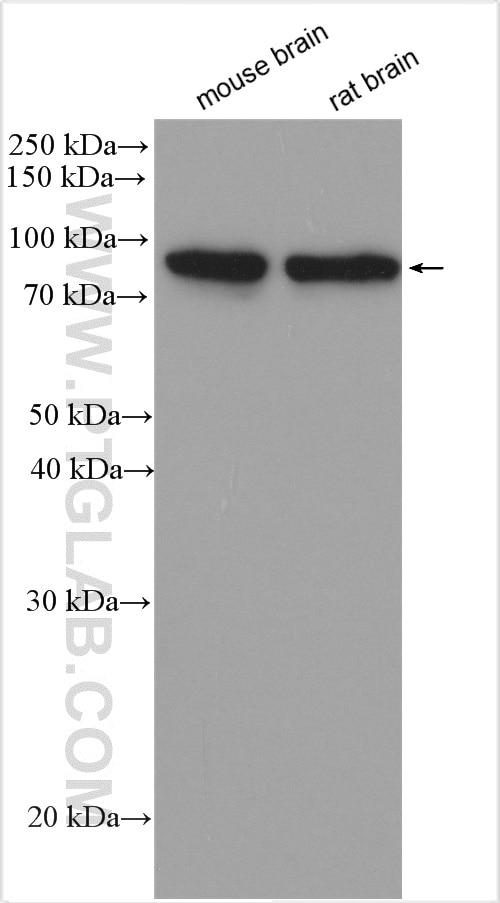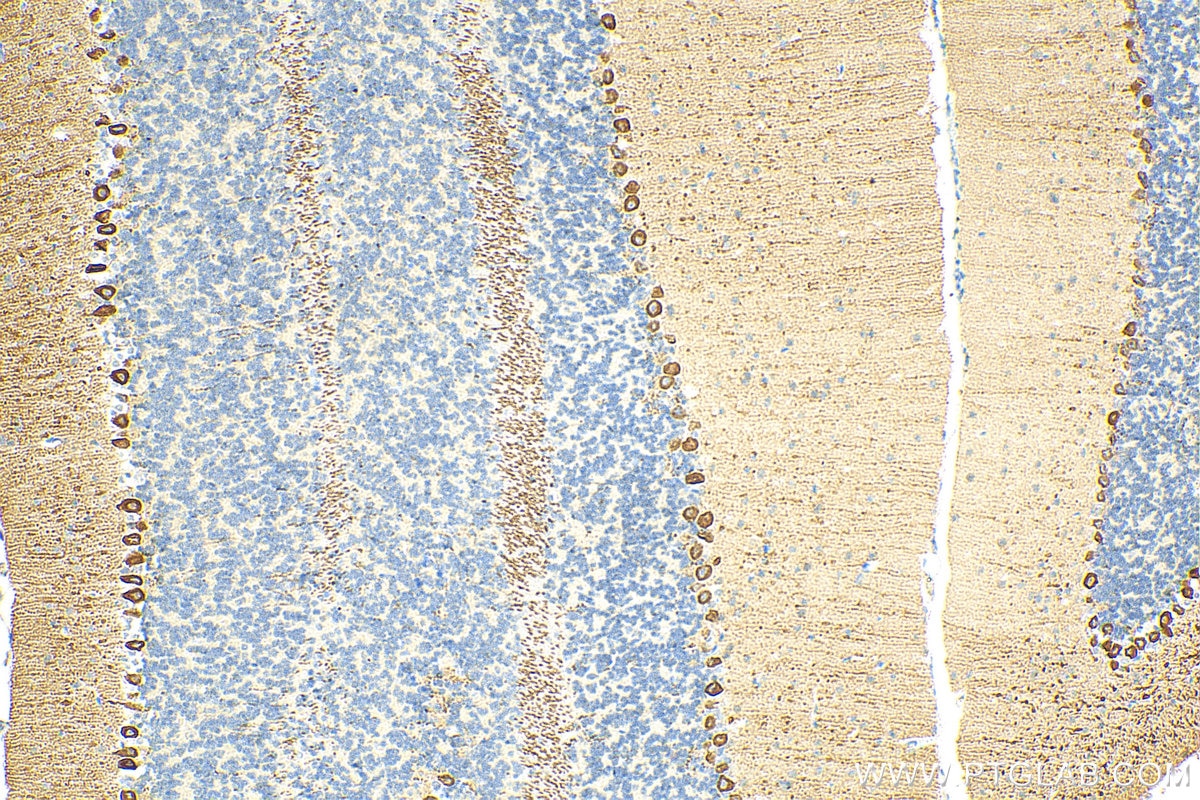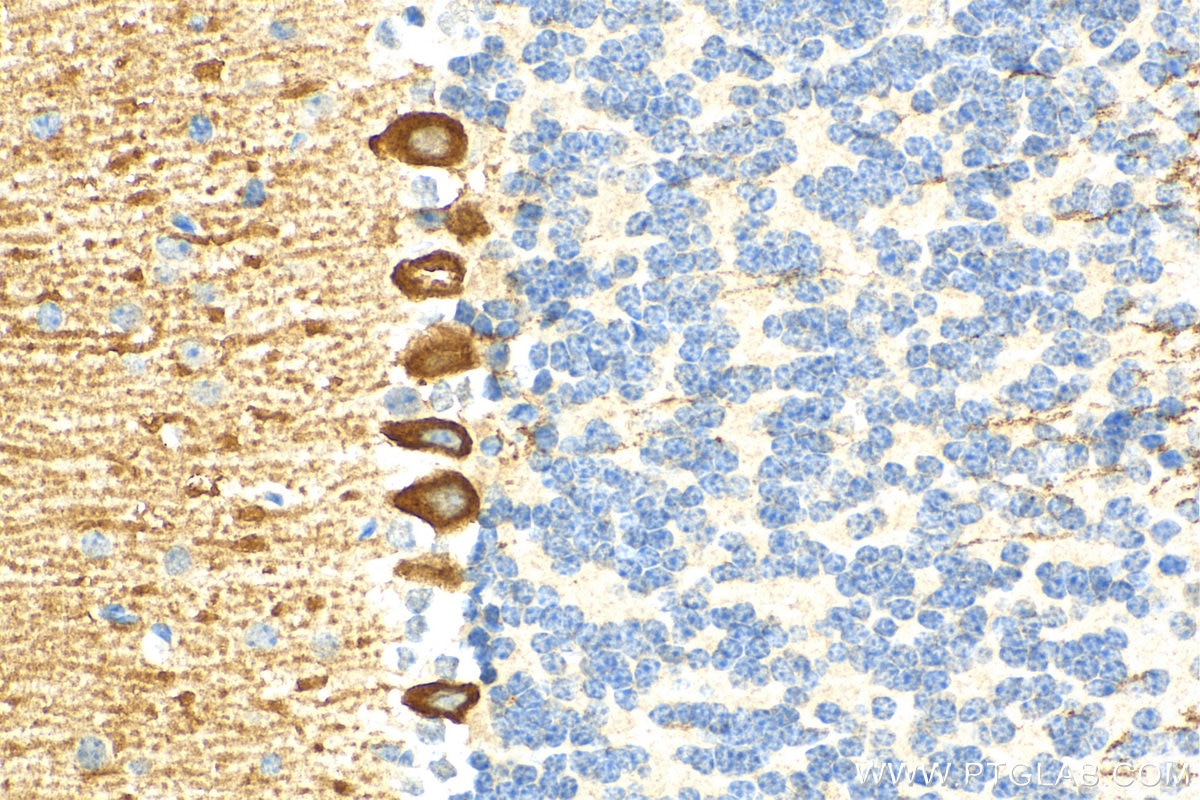Validation Data Gallery
Tested Applications
Recommended dilution
| Application | Dilution |
|---|---|
| It is recommended that this reagent should be titrated in each testing system to obtain optimal results. | |
Product Information
29208-1-PBS targets PKC Gamma in WB, IHC, Indirect ELISA applications and shows reactivity with human, mouse, rat samples.
| Tested Reactivity | human, mouse, rat |
| Host / Isotype | Rabbit / IgG |
| Class | Polyclonal |
| Type | Antibody |
| Immunogen |
CatNo: Ag25085 Product name: Recombinant human PRKCG protein Source: e coli.-derived, PGEX-4T Tag: GST Domain: 600-641 aa of BC047876 Sequence: SGPDGEPTIRAHGFFRWIDWERLERLEIPPPFRPRPCGRSGE 相同性解析による交差性が予測される生物種 |
| Full Name | protein kinase C, gamma |
| Calculated molecular weight | 78 kDa |
| Observed molecular weight | 78 kDa |
| GenBank accession number | BC047876 |
| Gene Symbol | PKC Gamma |
| Gene ID (NCBI) | 5582 |
| RRID | AB_2918249 |
| Conjugate | Unconjugated |
| Form | |
| Form | Liquid |
| Purification Method | Antigen affinity purification |
| UNIPROT ID | P05129 |
| Storage Buffer | PBS only{{ptg:BufferTemp}}7.3 |
| Storage Conditions | Store at -80°C. |
Background Information
Protein kinase C (PKC) is a family of serine- and threonine-specific protein kinases that can be activated by calcium and second messenger diacylglycerol. PKC family members phosphorylate a wide variety of protein targets and are known to be involved in diverse cellular signaling pathways. PKC gamma is a neuron-specific member of the classical PKCs and is activated and translocated to subcellular regions as a result of various stimuli, including diacylglycerol synthesis, increased intracellular Ca(2+) and phorbol esters. Defects in this protein have been associated with spinocerebellar ataxia type 14 (SCA14), an autosomal dominant neurodegenerative disease.



